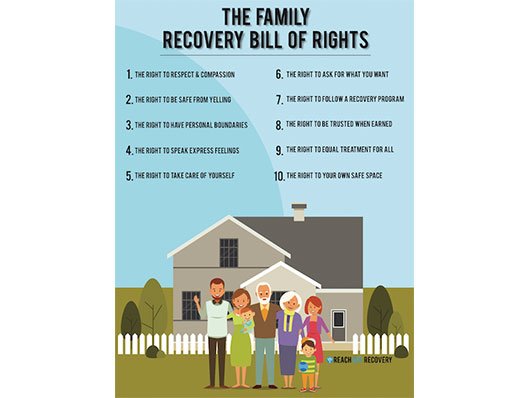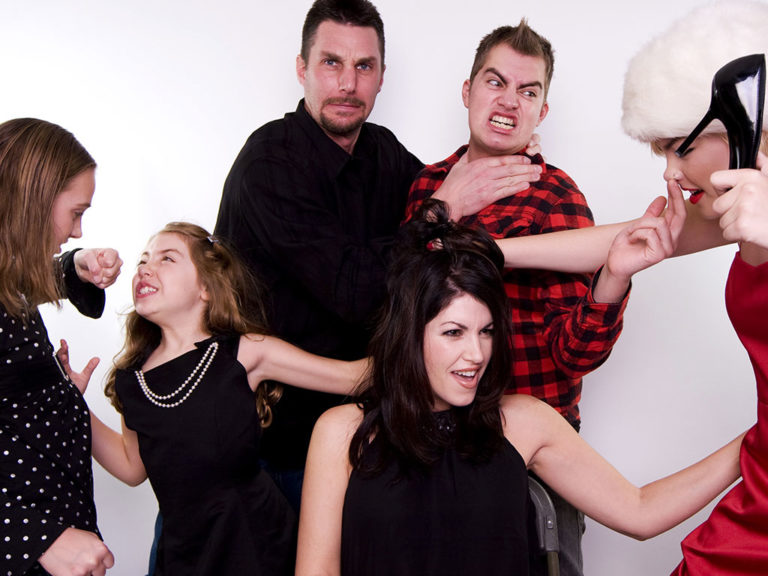According to my Mother, my brother Ricky needs extra love and care because of his addiction. My family rights are ignored. She always favors what’s right for Ricky. In recovery, I learn I have rights too.
Here’s a typical accommodation my mother makes for Ricky. Our family tradition is this: each person gets a fun dinner on their birthday at their favorite restaurant. Except me. “We can’t go to El Taco Loco,” my Mom said, “because they serve beer. Ricky can’t go to restaurants that serve alcohol. Besides,” she added, “Ricky has a meeting on Tuesday nights. We’ll have to celebrate your birthday on Wednesday instead.”
I sound petty, but this isn’t an isolated incident. It’s just the latest in a series of injustices. When we were kids, I had very strict rules. Ricky didn’t. If I disobeyed, I faced harsh consequences. Ricky had “different” punishments because “You just can’t yell at Ricky.” Or “Spanking doesn’t work on Ricky.”
In our teenage years, I fixed dinner, did laundry, washed dishes, and mowed the yard. Ricky had no chores because he wouldn’t do them anyway. I had to pay my way through college. Ricky got bailed out of jail, and my parents paid for his rehab. Twice. Today, Ricky still lives at home with a built-in maid and babysitter, our Mom. Because she does so much for Ricky, she doesn’t have any or energy left to spend time with me and my son.
Ricky Isn’t The Problem
Who do I blame for all of these injustices? For many years, I despised Ricky. I was jealous and angry. When I learned that alcoholism, also known as alcohol use disorder, affects the whole family, I saw more of the picture. My Dad’s drinking also contributed to our problems. For years, my Dad acted out under the influence. My Mom reacted. This became their dysfunctional dance. When Ricky and I came along, we learned their dance moves. These are the generational sins of alcoholism. Unfortunately, identifying the problem doesn’t undo the hurt.
Recovery teaches me that addiction is a disease. I grew less angry at Ricky, but I became furious with Mom. Over time (many, many months), I grew to accept my painful past. I am working on forgiving my Mom. I learned that what happened, happened to me. It doesn’t define me.
I Have Rights Too
One of the best things I’ve learned in recovery is I am equal to Ricky. My Mom has always favored Ricky. Instead of rewarding the successful child, she rushes to the one in need. This speaks of her illness, not of my character. Recovery has given me a new family of trustworthy people who love me unconditionally. This helped heal many of my emotional hurts.
Family Rights Let Everyone Recover
Family healing doesn’t happen overnight. Ricky and I have both been in recovery for a few years, but progress is in recovery is slow. Recovery isn’t a magic 8-ball that delivers the answers to all family conflicts. How do we move forward in a healthy way when we are still working hard to overcome our dysfunctional habits? I’m proposing we adopt The Family Recovery Bill Of Rights. Each person has the right to:
- Respect and compassion
- Be safe from yelling
- Have personal boundaries
- Speak and express feelings
- Take care of yourself
- Ask for what you want
- Follow a recovery program
- Be trusted when trust is earned
- Equal treatment for all
- Your own safe space
These guidelines protect everyone’s best interest. If, or more likely, when Ricky, my Mom, and I disagree, I take a minute to review my rights. This document reminds me that I don’t have to lose just so Ricky can gain. I can brainstorm for win/win solutions. I can set boundaries to protect myself. Finally, I don’t have to blindly trust those who have hurt me. No one can change the past, but I can protect myself now and in the future. It gives me independence in a chemically dependent family.
One of our most important posters, The Family Bill Of Rights, is on sale now in our shop. Downloadable and formatted to print in a range of sizes. Order today, empower today!






















